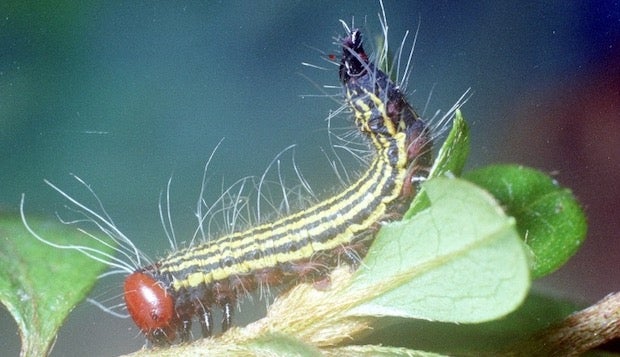What are these mounds in my yard?
Published 4:07 pm Wednesday, March 17, 2021
|
Getting your Trinity Audio player ready...
|
In the past two weeks I have had three calls about mounds in residential lawns from Tyrrell County to Beaufort County. There are a myriad of things that can cause mounds in your yard. It really depends on how the caller describes the mounds as to how I can diagnose the problem. Mounds and holes can be caused throughout the year by so many different invertebrates, rodents and even mammals. Oftentimes we notice these types of issues on the back end of the problem which can make it difficult to diagnose.
One caller wanted to know how to kill white grubs in her yard. Upon asking her what she was seeing, she described mounds that looked like volcanoes in her yard. She said they are so big that the mower gets clogged up with them every summer. That really had me guessing, especially this time of year when white grubs are mostly inactive in the lower levels of the soil profile. You see, white grubs are the larvae of several types of common beetles in Eastern North Carolina. They feed on the roots of our turf causing the turf to be stunted and, in some cases, really look bad. While I do see them at levels which are problematic, it is few and far between. There is a threshold that we use through research to know when to treat for white grubs. Using a flat shovel, near the end of April, peel back a 1 foot square piece of turf and look for grubs. If you find more than 5-7 grubs per square foot, treatment is recommended.
A few grubs aren’t going to hurt an otherwise healthy stand of turf. Another reason to treat white grubs is to take away the mole’s favorite food. This is a response to mole pressure in a lawn. Taking away the food source will help but not alleviate a mole problem. Moles are making tunnels this time of year foraging for food but now is not the time to treat for white grubs because they are inactive in the lower part of the soil profile, insecticides will not reach them to do any good. Treat white grubs if necessary, in late- April through mid-May and/or throughout September into mid-October, the latter being the best time of year for control. I thought that moles may be the problem since she said the soil was clogging the mower but this was not the issue.
My next thought was solitary ground bees. They create holes in the soil but not mounds and the timing is a bit early, so that didn’t fit. Finally, I thought well maybe it’s an issue with earthworms. Since I could not diagnose the issue over the phone, I had to investigate! Upon visiting with the client and taking a look I found that sure enough, her issue was with earthworms. The mounds she was seeing were their castings (which subsequently make great plant food).
The next question is always what can a spray for them? Sometimes, there isn’t an answer for that question! There isn’t anything registered (labelled) in North Carolina for use in a residential setting to control earthworms. There is also very little researched based information on how to kill earthworms because they are considered a very beneficial invertebrate to our soil systems. Earthworms perform several duties in soil, they aerate alleviating compaction issues, help water penetration into the soil profile, aid in thatch control of turf, in addition to adding bacteria and organic matter to the soil. In high enough numbers however, they can be problematic. They take away from the aesthetics of the lawn with the unsightly mounds and can interfere with sports activities from golf to baseball or lacrosse.
There are a few cultural controls that can be employed to deter earthworms. First and foremost, especially if you have centipedegrass, a lower pH (pH<6.0, centipedegrass likes 5.5pH) can deter earthworms. Earthworms tend to enjoy moist, less well-drained soil. Improving drainage could certainly help in deterring the worms from your soil. Lastly, some organic fertilizers contain saponins that may disrupt the mucous surface of earthworms causing them to desiccate.
If you have an unexplained phenomenon in your yard, give me a call so we can get to the bottom of it!
The Extension Master Gardener Volunteers have a great project right now. They are putting together a Lunch and Learn series on How to grow a salad in a bucket. The series will begin Thursday, March 25 at 12:00 p.m. You can register for this series by visiting go.ncsu.edu/saladinabucket. There will be six sessions, each on the subsequent Thursday at noon. Over the course of our thirty minutes together on zoom, we will go through the How To’s of growing your own salad in a series of five-gallon buckets. The program should take 15-20 minutes leaving 10-15 minutes for questions.
If you are having an issue in your home garden or landscape, send your questions to Gene Fox, Consumer Horticulture Agent with the North Carolina Cooperative Extension Service, please email at Gene at gene_fox@ncsu.edu or call at (252)946-0111. Learn more on Facebook at the Blacklands Area Horticulture page or visit the Extension Office located at 155 Airport Road in Washington, NC!
Gene Fox is the area consumer horticulture agent with North Carolina Cooperative Extension.





